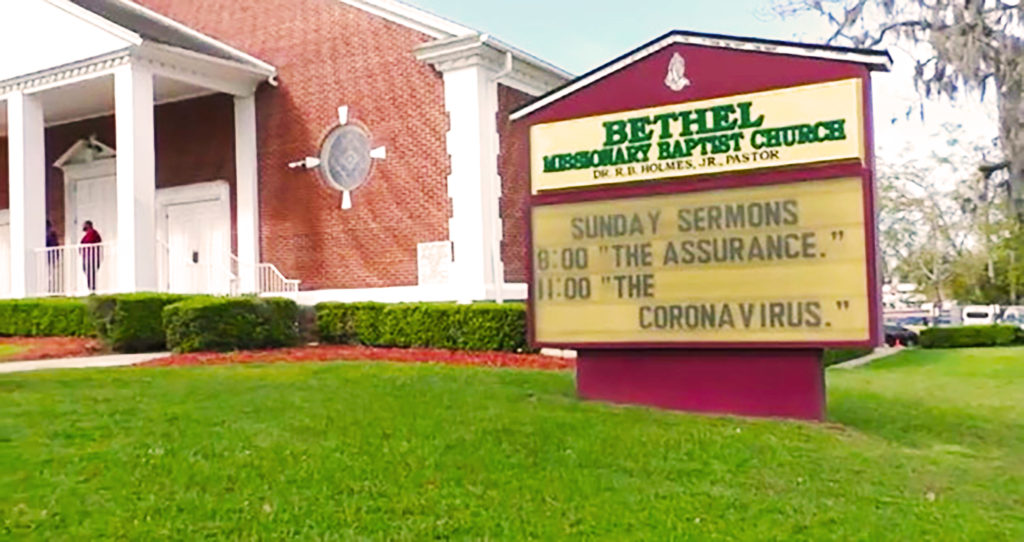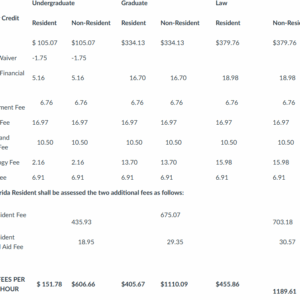Culture | March 21st, 2020
COVID-19, Communities of Color and the Church
By: Vynessah Dasher

“Coronavirus doesn’t stop the bills; it just stops us from working,” said Antonio Wilson, a construction worker in Tallahassee, Fl.
Wilson is one of many dreading the unfolding of COVID-19. While federal and city initiatives appeal to some of the public, in his eyes, they still fail to consider the little people.
Since federal law bans individuals charged with felony drug convictions from receiving welfare or food stamps in the state of Florida, Wilson is barred from receiving government assistance during this time.
Wilson is also a new father with no paid time off, no healthcare, and no clue where the progression of this virus will leave him. His biggest concern is the financial burden this will impose on his family. He eagerly awaits a federal response to the growing crisis.
Warren Allen, a day labor worker and father of two, says that he relies on the income he receives daily in order to provide for his family. He takes any job he can to make ends meet, and if he “can’t work, his family won’t eat.”
“Some of us live by a code. We love our families more than anything and do whatever it takes to feed the family,” Allen explained.
The struggling father went on to share that the Lord has blessed him with side jobs even though the virus has already started to affect other places of work in the community.
The US Census Bureau reported that Tallahassee suffers a poverty rate of approximately 26.7%. Communities of color represent some of the most vulnerable populations during this time. In Leon County, Bethel Missionary Baptist Church is one of many institutions standing at the front line of defense for its surrounding black communities.
“The black church, all churches, but the black church especially because of our sobering past and our historic significance we cannot have a stain glass mentality,” explained pastor of Bethel Missionary Baptist Church, Rev. R.B. Holmes.
The church has a historic responsibility to the black community. This includes having a worldview that extends far beyond the church walls, according to Holmes.
In response to growing coronavirus concerns, Rev. Holmes plans to continue feeding the public daily at 12:00 p.m. until the crisis is over. He also invites those who are stressed to reach out to the church’s mental health clinic which is equipped with healthcare specialists ready to serve the public at this time.
“Understand we have to do things the way the bible says… set my people free, be concerned about the less fortunate,” said Holmes.
The church has also prepared a job fair for those who will be unemployed or are currently underemployed. This event will take place on April 25, when the virus slows down.
“Who ought to take care of our children, who ought to take care of our senior citizens? Who ought to build up our community?,” Holmes posed. “We ought to do that.”
According to WTXL Tallahassee, Mayor John Daily proposed that the city will defer utility payments until further notice. He says that the Florida State Capitol is working around the clock to protect its citizens every way they can.
“We will not shut off anyone’s utilities and will work with you on a payment plan,” said Dailey.
But just how long will the city allow debt to accrue?
While utility bills are on pause, for now, governments have yet to address the other major financial concerns such as rent, daily living expenses, childcare services. etc.
Vulnerable populations left to the mercy of the government are seeking refuge in their faith.
Historically, the role of the Black church has been to provide a sense of relief from external hardships. It is because of this principle that there rests a degree of social, economic, and political power vested in the institution.
“We can’t save everyone, but my God, there are some things the church can and must do,” commented Holmes. “We just have to encourage our people, don’t panic, prepare and pray.”





